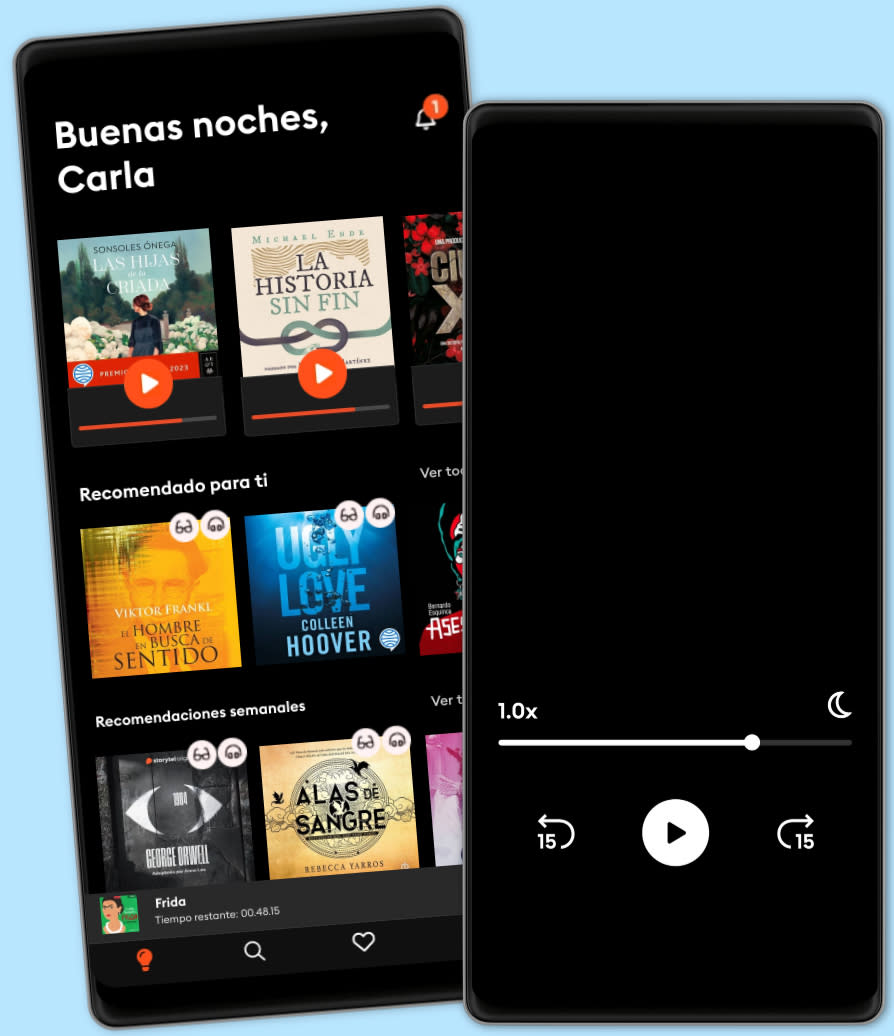Escucha y lee
Descubre un mundo infinito de historias
- Lee y escucha todo lo que quieras
- Más de 500 000 títulos
- Títulos exclusivos + Storytel Originals
- 14 días de prueba gratis, luego $24,900 COP/al mes
- Cancela cuando quieras

Presidential Assassinations: The History of the Killing of Abraham Lincoln, James Garfield, William McKinley, and John F. Kennedy
- Por
- Con
- Editorial
- Duración
- 4H 39min
- Idioma
- Inglés
- Format
- Categoría
Historia
Until April 14, 1865, John Wilkes Booth was one of the most famous actors of his time, and President Abraham Lincoln had even watched him perform. But his most significant performance at a theater did not take place on the stage. That night, Booth became one of history’s most infamous assassins when he assassinated President Lincoln at Ford's Theatre in Washington, D.C.
In 1880, Civil War veteran James Garfield was running as a Republican for president, and one of his supporters was a man named Charles Guiteau, who wrote and circulated a speech called “Garfield vs. Hancock” that aimed to rally support for the Republican candidate. Though few knew it, Guiteau’s family had already deemed him insane and attempted to keep him committed in an asylum, only to have him manage an escape from confinement.
In September 1901, the city of Buffalo was full of celebration. The Pan-American Exposition was ongoing, and it brought notable figures to northern New York, including President William McKinley, who had been reelected less than a year earlier. But also in Buffalo was Leon Czolgosz, a young man who had turned to anarchy years earlier after losing his job, Embracing his philosophy wholeheartedly, Czolgosz believed it was his mission to take down a powerful leader he considered oppressive, and McKinley’s attendance gave him the chance.
In the annals of American history, few moments have been so thoroughly seared into the nation’s conscience that Americans can remember exactly where and when they heard about an earth-shattering event. In the 20th century, there was Pearl Harbor and the assassination of President John F. Kennedy. November 22, 1963 started as a typical Friday, and many Americans were unaware that President Kennedy was even heading to Dallas, Texas.
© 2024 Charles River Editors (Audiolibro ): 9798882347146
Fecha de lanzamiento
Audiolibro : 1 de junio de 2024
Etiquetas
Otros también disfrutaron ...
- Napoleon: The Man Behind the Myth Adam Zamoyski
- 1917: Lenin, Wilson, and the Birth of the New World Disorder Arthur Herman
- The Mysterious Losses of the USS Thresher and USS Scorpion: The History of the Only American Nuclear Submarines Lost at Sea Charles River Editors
- April 1865: The Tumultuous History of the Confederacy’s Last Month Charles River Editors
- Say Nothing: A True Story Of Murder and Memory In Northern Ireland Patrick Radden Keefe
- The Battle of Saipan: The History and Legacy of the Pacific D-Day Charles River Editors
- The Guns of August Barbara W. Tuchman
- Kissinger: A Biography Walter Isaacson
- October Fury Peter A. Huchthausen
- Weimar Germany: Promise and Tragedy, Weimar Centennial Edition Eric D. Weitz
- Cómo mandar a la mierda de forma educada - En 10 Minutos. M.Casanova
4.3
- Cómo Hablar Con Cualquier Persona En Cualquier Lugar Y En Cualquier Momento Nina Maxwell
4.3
- Victoria: Premio Planeta 2024 Paloma Sánchez-Garnica
4.6
- Cien años de soledad Gabriel García Márquez
4.6
- Cómo hacer que te pasen cosas buenas: Entiende tu cerebro, gestiona tus emociones, mejora tu vida Marian Rojas Estapé
4.5
- Los secretos de la mente millonaria T. Harv Eker
4.3
- Alas de Hierro Rebecca Yarros
4.3
- Harry Potter y la piedra filosofal J.K. Rowling
4.8
- Como hacer que te pasen cosas buenas - En 10 Minutos M.Casanova
4.1
- El Poder de Estar Solo: Una Dosis de Motivación Acompañada de Ideas Revolucionarias Para una Vida Mejor BRIAN ALBA
4.2
- Alas de sangre Rebecca Yarros
4.5
- Alas de Ónix (Onyx Storm) Rebecca Yarros
4.2
- La ley de la atracción William Walker Atkinson
4.5
- Volver a empezar (It Starts with Us) Colleen Hoover
4.2
- Romper el círculo (It Ends with Us) Colleen Hoover
4.3
Español
Colombia